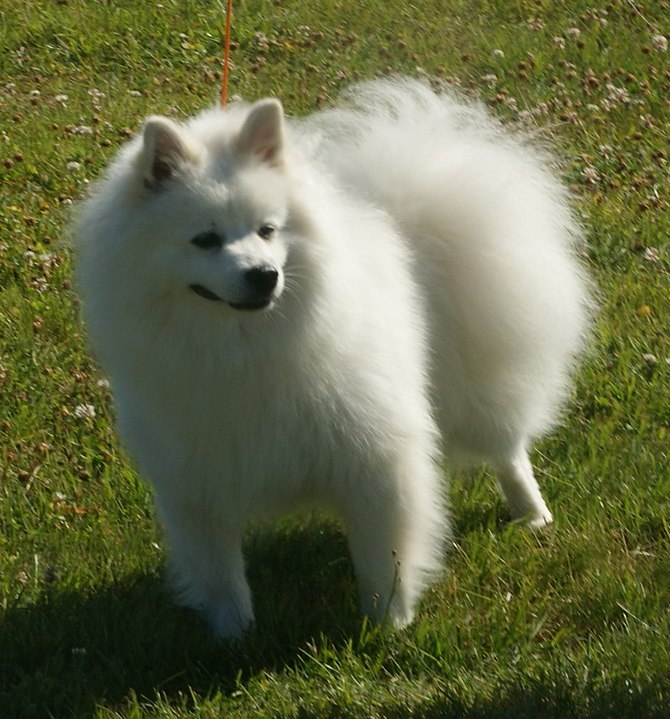The Volpino Italiano is an ancient breed from Italy. At one point they almost went extinct due to lack of interest but were then saved in the 1960’s. The word volpino means “little fox”, so essentially the breed name means “little fox from Italy”. Although this rare spitz has only recently been granted membership to AKC’s FSS program (a service that helps breeds eventually gain full recognition), ancestors of the breed might possibly date back all the way to 350 BC! Close relatives include the German Spitz, the Pomeranian and also the American Eskimo Dog – in fact Eskie breeders used the Volpino to help create the toy variety of their own breed.
Volpini (the plural form of the name) are energetic in the home and do need regular exercise. That said, this is a tiny breed so a little exercise for you equals out to a lot of exercise for him! A brisk walk for most humans is enough to get him into a jog, which means that walking even a short length can amount to a decent workout. Once he’s back home, he’ll probably be more than happy to take a long nap in his bed (or your lap).
The Volpino Italiano is an affectionate and loyal little spitz that is good with children, other dogs and cats. Because of his tiny size and overall delicate frame, he is not recommended for those with very small kids. Like all dogs bred to be companions, he needs to live in the home and have plenty of interaction with his owner/s. He can get lonely without enough companionship and doesn’t do well when his people work all day, even becoming destructive. This devoted spitz forms a very tight bond with those whom he lives with! With strangers he is often more suspicious and may even vocalize his concerns when out in public.
Many Volpini share the trait of being yippy, particularly in homes with lots of guests or passers-by to the property. They will announce when they see people walking outside or that they hear in the hallway so while they can be apartment dogs, they must be trained to be quiet – not always an easy feat. (Historically they were appreciated for their “guarding instincts”, which speaks volumes of their voices and enjoyment of barking.)
The Volpino Italiano is easy to train and can even do well in dog sports such as agility, nosework and rally! His curious nature, love of food rewards and great desire to please means he also tends to enjoy learning obedience. Like his active body, he also has an active mind that needs mental stimulation in the form of training, games and challenges. Very playful, he especially likes training that seems like a game. Like most spitz breeds he’s not an obedience robot and does have a mind of his own when he decides on “a better way” to perform a command – leading to some calling him stubborn. He also tends toward bossy behavior if rules aren’t started (and enforced) from puppyhood!
The Volpino can be prone to eye problems so it is highly recommended to only purchase dogs from breeders who test for primary lens luxation before breeding. Breeders should also test parents for patellar luxation, a kneecap problem. Thankfully, many Volpini live healthy and non-eventful lives in terms of health, and can live up to 15-16 years – a long time compared to many other breeds. Thankfully the adaptability of the breed means he can transition easily to different lifestyles as his owner matures and changes throughout the years, as long as his basic needs are always met.
Volpini Italiano are a low-to-medium shedding breed. Their coat is medium-long in length but double-coated which lends to it’s extra fluffy appearance. The coat isn’t difficult to groom but does require regular care – at least twice a week of brushing. Check the eyes to make sure they’re clean with no discharge, and clean the ears every week. They require no special trimming with the exception of evening out the hair under the feet so they don’t slip and slide. Finally, bathe every few weeks or so using a shampoo formulated specifically for dogs. Keep nails clipped short and teeth brushed regularly, and he’ll be all set!

Photo by Canarian
